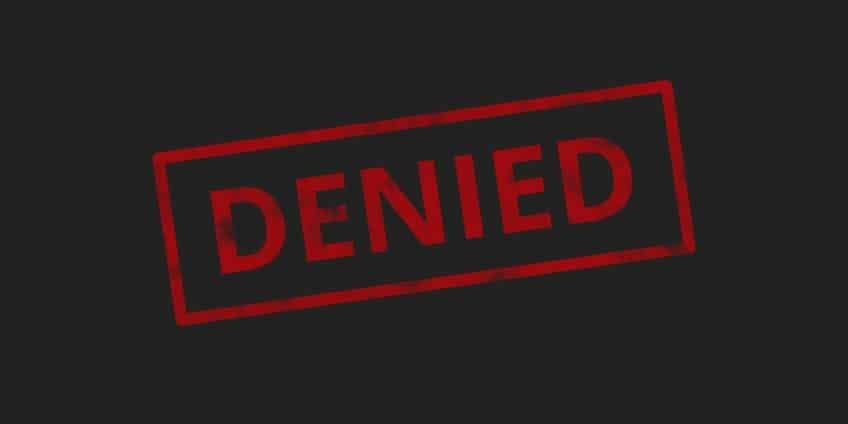GEICO Required To Pay Plaintiff’s Attorney Fees
Car AccidentsIn GEICO v. Macedo (Case No.: SC16-935), the insurance company was ordered to pay the plaintiff’s attorney fees and costs after the insurance company chose to defend a car accident case through trial rather than settle.
Facts Of The Case
GEICO’s insured caused a car accident in 2012 with the plaintiff, Alysia Macedo. The insured had policy limits of $100,000 per person and $300,000 per accident. Ms. Macedo sued the insured for damages and was offered $50,000 in a proposal for settlement by GEICO on behalf of their insured driver.
Ms. Macedo refused the offer and the case went to trial resulting in a jury verdict of $243,954.55.
Why Does GEICO Have To Pay For The Claimant’s Attorney’s Fees?
The essence of this case is that GEICO lost at trial and, under section 768.79, Fla. Stat. (for proposals for settlement), the plaintiff is permitted to collect the reasonable cost of attorney fees. In this case, Ms. Macedo won at trial by getting a judgment that was more than 25% greater than the insurance company’s proposal for settlement. Proposals for settlement were intended to punish plaintiff’s who do not accept a reasonable offer and defendants when their offers are too low. GEICO was ordered to pay for the plaintiff’s attorney’s fees as a “sanction” for losing on the proposal for settlement.
Ambiguities In Insurance Contracts Are Generally Construed Against The Insurance Company
It is well settled law that insurance policies are supposed to be given their “plain meaning” and that any ambiguity must be “liberally construed in favor coverage” and “strictly against the insurer.” The reason that this is so is because the insurance company writes the contracts and people buying insurance really have no power to negotiate its terms. In other words, you cannot walk into GEICO’s office and ask them to change the policy before you buy. If you try to do that, you will be promptly shown the door.
With that being said, GEICO’s policy says that GEICO will pay for:
- “All investigative and legal costs incurred by us;” and
- “All reasonable costs incurred by an insured at our request.”
The ambiguity is whether the “sanction” from losing the trial is something that GEICO is responsible to pay for as a “legal expense” as listed in the policy index. The Florida Supreme Court found that referring to “legal expenses” in conjunction with “court costs” is ambiguous.
Insurance Bad Faith
Whenever you are dealing with an insurance company, you must remember that the insurance company has the final say on settling your case if the numbers are within policy limits. In other words, the insurance company can defend your case (even if you tell them to settle) when the plaintiff demands the policy limits (or something below). Thereafter, if the insurance company refuses to pay policy limits and the case results in a judgment for more than policy limits, this is called insurance bad faith.
Therefore, the overtone to this entire discussion is that the decision by GEICO not to pay policy limits was made when the plaintiff was not seeking money above the policy limits.
Of course trial changes everything as all bets are off. The jury awards what they believe is fair as they did in this case. If that happens to be more than the policy limits, then the insurance company is generally responsible to pay for an excess judgment under principles of bad faith law. This case extends that principle to the entire excess judgment by including the “sanction” for attorney’s fees under a proposal for settlement.
Can GEICO Change Their Policy Language?
Despite this decision, GEICO could change their policy language and cause this issue to be re-litigated at some point in the future. Should that happen, we would hope that this case would be seen as an insurance bad faith case and not just a policy language case. Although the formal legal holding of the Florida Supreme Court merely addresses the ambiguity in the policy language, the much broader application is that insurance companies should not be permitted to contract around the law and defeat the purpose of the law.
The plaintiff in this case should win not just because of the policy ambiguity but should also win even if the policy language were changed to specifically exclude “sanctions” for losing on a proposal for settlement. The reason for this is the very nature of bad faith in that the insurance company controls all the decisions but, if they don’t have to cover all the damages caused by their decisions, then an injustice results to the policyholder.
Therefore, GEICO should have to pay the entire judgment against their policyholder (regardless of whether it includes a “sanction” for losing) under principles of insurance bad faith in Florida.
Getting Help For Your Car Accident Lawsuit
If you have been injured in a car accident and need help getting fair compensation from the insurance company, you should contact a Lakeland, FL car accident attorney to discuss what you can do. A consultation with an attorney is free and you never owe any money unless you win your case. Schedule your free appointment with an attorney today.


